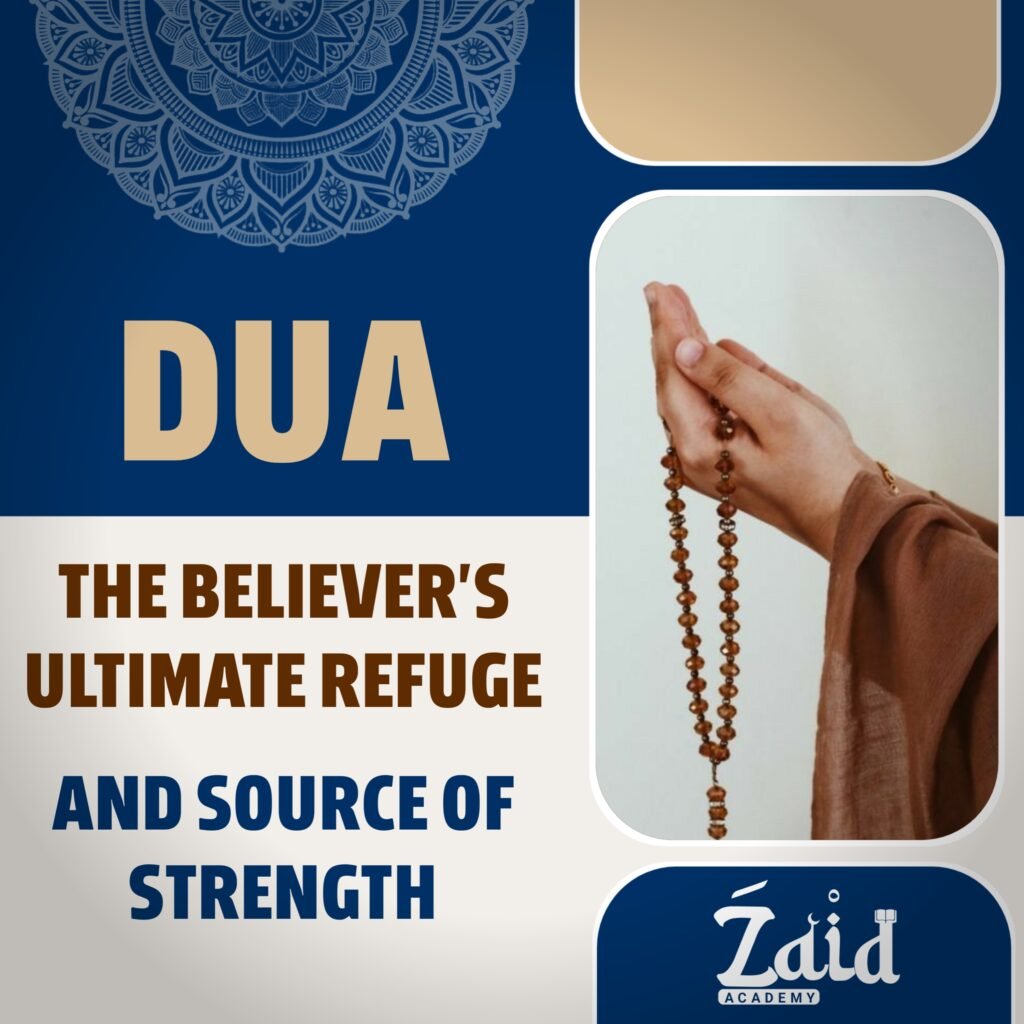Supplication (dua) is a powerful act of worship that reflects the greatness of Allah and our deep reliance on Him. Allah, in His infinite mercy and majesty, can grant anything we ask for, no matter how big or small.
The beauty of dua lies in its simplicity. There is no need for a specific place, time, or elaborate ritual. It is a heartfelt conversation between the servant and the Creator, where hopes, fears, and dreams are laid before the One who controls everything.
This article explores the significance of dua, its boundless possibilities, and how it strengthens our bond with Allah.
The Invitation to Call Upon Allah
Allah has encouraged us to make supplications and promised to answer them:
وَقَالَ رَبُّكُمُ ادْعُونِي أَسْتَجِبْ لَكُمْ
“And your Lord says, ‘Call upon Me; I will respond to you.'” (Surah Ghafir, 40:60)
This verse is a clear invitation from Allah. It reminds us to call upon Him for everything, no matter how small it may seem. Even trivial matters are significant because, without Allah’s permission, we cannot have them. Everything we have is from Him alone.
How Allah Responds to Our Supplications
Allah has guaranteed that every supplication will be answered, but His response may take different forms. The Prophet (peace and blessings be upon him) said:
“There is no Muslim who makes a supplication to Allah, in which there is no sin or severing of family ties, except that Allah grants him one of three: either He hastens the fulfillment of his request, or He stores it for him in the Hereafter, or He averts from him a harm that is similar to it.” (Narrated by Ahmad)
This hadith highlights three ways Allah responds:
1. Immediate Fulfillment: Allah may grant our request right away.
2. Reward in the Hereafter: Allah may delay the response, storing it as a greater reward for us in the Hereafter.
3. Protection from Harm: Allah may withhold what we ask for but instead avert a harm equal in magnitude.
When the companions asked if they should increase their supplications, the Prophet (peace be upon him) replied that Allah’s generosity exceeds whatever they could ask for.
The Blessing of Praying for Others
Dua is not just for personal benefit. It is also a way to bring goodness into the lives of others. The Prophet (peace and blessings be upon him) said:
“The supplication of a Muslim for his brother in his absence will certainly be answered. Every time he makes a supplication for good for his brother, the angel appointed for this task says, ‘Ameen! May it be for you too.’” (Narrated by Muslim)
This shows that when we pray for others sincerely, without their knowledge, angels make the same dua for us. It is a powerful reminder of Allah’s mercy and the interconnectedness of the Muslim community.
Best Times for Supplication
Certain times are especially blessed for dua to be answered:
1. During the call to prayer (Adhan).
2. Between the Adhan and Iqamah.
3. After obligatory prayers.
4. During the last third of the night.
5. The special hour on Friday (scholars differ whether it is during the Friday sermon or the last hour before Maghrib).
Etiquettes of Supplication
To increase the likelihood of dua being accepted, one should:
1. Begin and end the supplication with praise and glorification of Allah and send blessings upon the Prophet (peace and blessings be upon him).
2. Raise their hands while making dua.
3. Be firm in their request, avoiding hesitation.
4. Consume lawful (halal) provisions and avoid what is prohibited.
5. Persist in supplication and not grow weary.
Why Persist in Dua?
Abu Huraira (may Allah be pleased with him) reported that the Prophet (peace and blessings be upon him) said:
“Whoever does not ask Allah, He becomes angry with him.” (Narrated by al-Tirmidhi)
Ibn al-Qayyim explained: “This shows that Allah’s pleasure lies in being asked. If Allah is pleased, all goodness follows. If He is displeased, calamities arise. Moreover, supplication is an act of worship, and Allah becomes displeased with those who neglect it.”
Dua: A Believer’s Refuge
Dua is the believer’s safe haven from worries, a means to seek justice, and a path to attaining the highest ranks in this life and the Hereafter. When we face difficulties, dua connects us to the One who can remove harm, ease hardships, and turn the impossible into reality.
After all, if we do not ask the Almighty, the Most Powerful, then who else can we ask? He alone is our refuge, and there is no one else to turn to but Him.

Zaid Academy is an online Islamic academy that provides one of the best Arabic, Quran and Islamic Studies programs for kids and adults.
All rights reserved by 2024 © Zaid Academy
Not a member yet? Register now
Are you a member? Login now